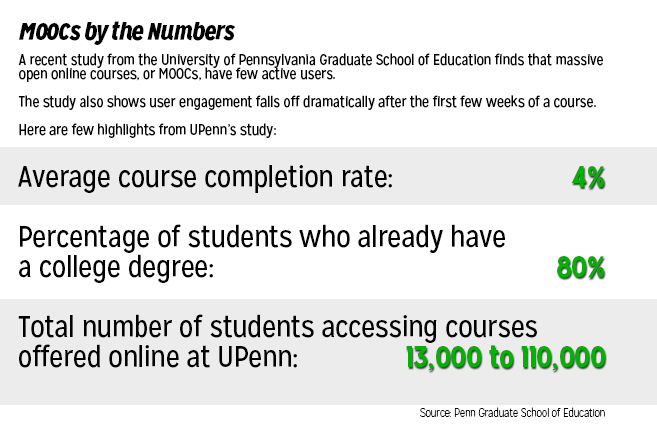
Queen Rania of Jordan and edX President Anant Agarwal announce a MOOC partnership (Kirk Carapezza photo).
It's not very often the Queen of Jordan comes to Boston, but she was here last month to announce a new education partnership with Harvard and MIT's non-profit online learning initiative, edX.
The goal is develop a new platform called Edraak, which is designed to bring online courses to Arabic-speaking students.
EdX is already in France and China, and now the nonprofit is shifting its focus to the Arab world, where access to higher education has historically been limited, especially for women.
EdX President Anant Agarwal and Queen Rania Al Abdullah of Jordan announced their new partnership during a signing ceremony in Cambridge last month.
At edX headquarters, Her Majesty told staffers that new technologies like massive open online courses, or MOOCs, can jumpstart education reform in her country — and across the Middle East.
"Being able to provide these courses to people all over the world, and giving them the opportunity to be exposed to the best of the best in terms of education, there's nothing more fair than that," Queen Rania said.
The queen has long advocated for better education in the Arab world. Five years ago, she launched an initiative to educate one million Arab youth by 2018.
In Jordan, students often use their family connections to obtain limited seats in university programs, so ever since she first read about MOOCs, Queen Rania says the new technology has captured her imagination.
Still, she points out setbacks to her country's education reform: limited resources, and, most recently, the Syrian refugee crisis. Without access to quality education, more and more young Jordanians are becoming extremists.
"The Arab world is going through a period of transition," she said. "At the same time, there's a lot of promise and potential. And I believe that as we try to bring calm and stability to our region, we need to think in terms of the future."
It might sound like a rhetorical flourish, but Queen Rania hopes to leverage edX's technology at colleges and universities in the Middle East. EdX President Anant Agarwal is confident it will reach students anywhere — at any anytime.
Listen to a clip from Kirk's extended interview with edX President Anant Agarwal:
"Here's a chance to provide online learning to a large population that previously did not have great access to large numbers of bricks and mortar universities, or lots of high-quality professors," Agarawal said. "So here's a chance to experiment with something new that has the potential to be transformational in education around the world."
While edX and other international organizations look to increase access to quality education throughout the world, the question now is: what's the real potential of these online courses?

Early studies show students don't retain as much information in an online section of a course compared to a face-to-face section. And only a small percentage of students who sign up for MOOCs actually complete them.
"Whether or not MOOCs, as currently constituted, are going to deliver is up in the air, but we have to try," said economist and higher education consultant Bill Massy. He predicts a bunch of false starts, but eventually, he says, this new technology won't be denied.
"What we need to do is figure out how to take the massive online technology and meld it with human factors where that is necessary and possible to produce an array of opportunities for disadvantaged students," Massy said.
Edraak is expected to go live early next year, and developers predict its content will reach millions of Arabic-speaking students.










